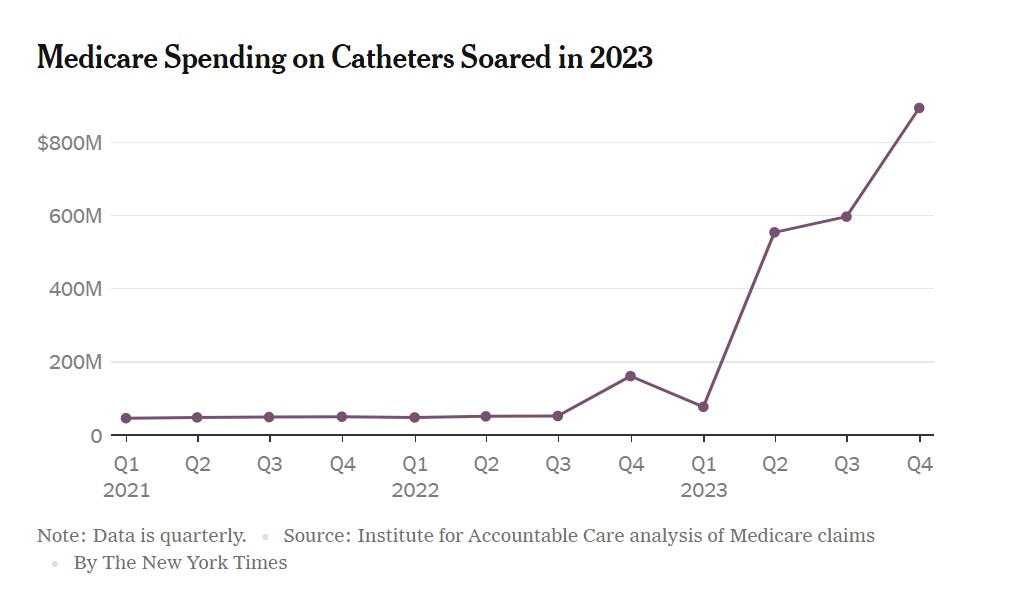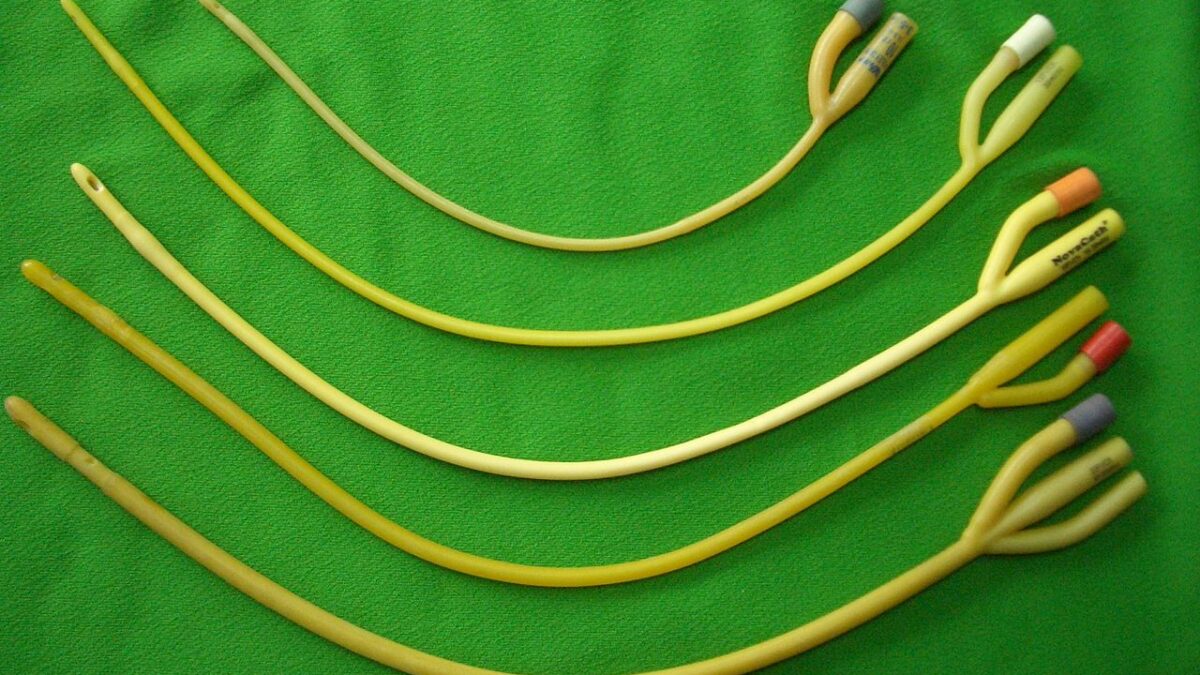Stop me if you’ve heard this one before: A government program is rife with fraud. After years’ worth of stories about scams during Washington’s Covid-19 spending binge — bogus pandemic-related unemployment benefits totaled an estimated $100-135 billion, according to a Government Accountability Office report from last fall — now the scammers are hitting up Medicare (again).
The New York Times reported recently about a sharp spike in Medicare spending on catheters, amid numerous signs that scammers have targeted that benefit to bilk the government out of taxpayer funds. With Medicare rapidly approaching insolvency, the problem is twofold: Criminals still consider the program such an easy source of cash — because the feds do such a poor job at finding and catching the crooks.
Obvious Spending Pattern
Times reporters interviewed several seniors explaining how they had been billed for catheters they never received and do not need or use. It also noted that the number of Medicare beneficiary accounts billed for catheters rose roughly nine-fold last year, from 50,000 to 450,000.

New York Times /
Fair use
The pattern of Medicare spending on catheters echoes the increase in beneficiaries billed. Based on this graph from the Times story, it doesn’t take a doctorate in economics to realize that something fishy has happened regarding payments for catheters — and that, assuming most or all of the increase is due to fraud, Medicare has already given the scammers billions of dollars.
Over and above whether and when the feds can catch the scammers, the real question is: How did this happen? Or, given the federal government’s history of permitting fraud in federal health care programs, how does this keep happening?
Obvious Signs
Several elements of the Times story stand out as illustrations of the federal government’s incompetence at catching fraud. For starters, the data for the graph above came from a report issued by the National Association of Accountable Care Organizations, a private nonprofit.
Therein lies an obvious question: Why isn’t Medicare analyzing data and publishing these types of reports to alert senior citizens about the latest scam making the rounds? Granted, the private entity that did the analysis used data that Medicare has in recent years published online, to make more information available to researchers.
But it shouldn’t take a year, and billions of dollars in potentially fraudulent spending out the door, before Medicare gets its act together and cracks down on scams. Other elements of the Times story also demonstrate that many private entities have known about this increase in catheter-related fraud for months.
For instance, a Nashville business that coincidentally shares the same name as one of the companies running this apparent scam has received so many complaints from irate seniors that she created a page on her website indicating that her firm has nothing to do with the scam and instructing seniors how to take action to report fraud. According to the Times, the owner of the legitimate business “called in a complaint to Medicare in September … but the barrage of phone calls has not stopped.”
In another example, one physician member of an accountable care organization filed a complaint with the inspector general in December, after his patients were billed $2 million last year for catheters they did not need or use: “I just know that it’s all fraud because our doctor didn’t order it and our patient never got it.”
Finally, back in July, the Oklahoma insurance commissioner’s office noticed a suspicious pattern regarding catheters while investigating fraud related to Covid-19 testing: “When we started asking seniors, they told us they had never used urinary catheters and didn’t know why the claims were there.”
The question practically asks itself: If all these people knew something suspicious was going on, why on Earth didn’t Medicare do anything about it? Since the Oklahoma insurance commissioner’s office got suspicious in July, Medicare has paid out at least an additional $1.5 billion in catheter claims — most of which are likely fraudulent. How many more billions must the scammers steal before the federal government finally acts?
Stop the Medicare Steal
As I laid out in my book The Case Against Single Payer, those who claim government-run systems hold more efficiencies than the private sector fail to account for the billions — quite possibly tens or hundreds of billions — of dollars in fraud that plague programs like Medicaid and Medicare. Private-sector companies wouldn’t see the type of billing pattern seen for catheters — with spending going straight up for over a year — without asking far more questions about potential fraud far sooner, that’s for sure.
With the federal government $34 trillion in debt and Medicare already functionally insolvent, it’s long past time for the federal government to get serious about fighting fraud. Medicare does need structural reforms — reducing or eliminating fraud probably won’t make the program solvent on its own. But stopping the scammers is the most logical place to start.









